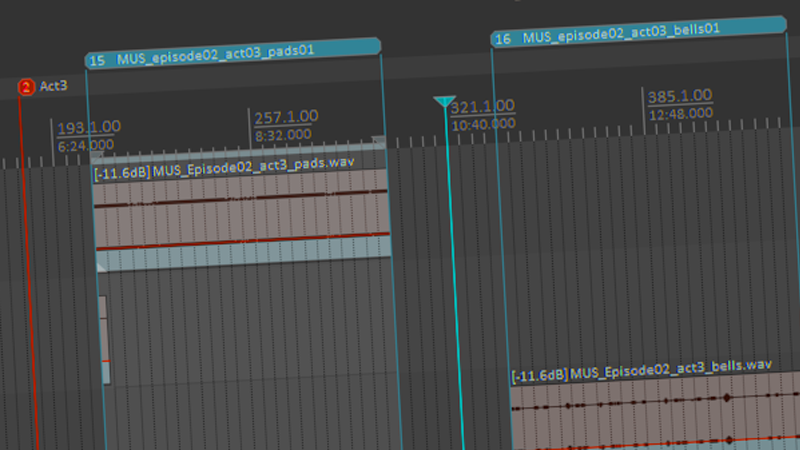|
We’re breaking with our blogging tradition this time and welcoming Worthing & Moncrieff’s resident sound designer, Eric Hamel, to talk about composing the score for HRO and how he sees the role of music in the larger development context. So if this post is mysteriously more coherent and less snarky than our usual fare, you know who to blame… Music has long been an integral part of the gaming experience. It’s an essential tool for immersing players into the game world, enhancing action, and shaping the emotional tone. But composing game music is uniquely challenging because the player has control over the action and events the score is intended to complement. When composers score a film, they know exactly when events take place and how the action will change. Game composers don’t have that same luxury of predictability. On a practical level, structuring the music in HRO has been an exercise in balance. As an interactive narrative experience, I was looking to strike the right balance of melody so that character themes could be explored — without creating a distraction for players reading dialogue or working through a puzzle. And there’s a lot of dialogue in HRO (like, a lot). To avoid listener fatigue and hit that elusive sweet balanced spot, I used a system of pattern and variation. In our three act system, most episodes conform to a pattern whereby the first two acts have a similar atmospheric track that changes based on what the player is doing. If the player is having a conversation with a character, we’ll hear a familiar chord progression. But if the player is digging through resources or exploring an action panel, the chord progression will complicate. In the third act — the height of the narrative tension — we hear a more orchestrated version of the same musical idea. However, instead of the chord progression changing, the instrumentation changes based on the player’s activity. This concept was extended to the potential game outcomes. If the player is exploring an administrative action panel that is sure to lead the Endeavor to certain doom, they’ll hear more foreboding instrumentation. The bassline, for example, might become more prominent. Alternatively, if the player is exploring an action panel that can lead to success, they’ll hear instrumentation that’s more triumphant and heroic. Horns might become more noticeable, or the episode melody might take over. Most players won’t be conscious of the specific messaging in the scoring, but their experience will be affected and perhaps even gently guided by the cueing — on some level. A game audience has agency — and by directly harnessing the power and unpredictability of that agency to the score itself, I’m aiming to integrate the music and the core game mechanic to create a more immersive and impactful experience. When the music is connected — in a meaningful way — to something the player chooses, it ceases to be background and gains the potential to connect on a deeper emotional level.
0 Comments
Leave a Reply. |
AUTHORWorthing and Moncrieff, LLC is an independent developer of video game stories founded in 2015. ARCHIVES
December 2022
|

 RSS Feed
RSS Feed
